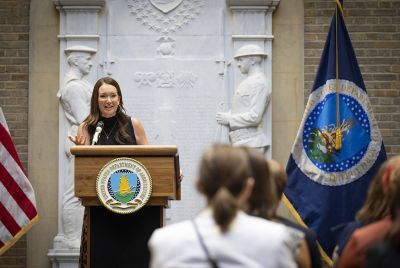Northern Ireland 2017 election: DUP favourite to become Stormont's main party as polls open
Snap election called after Sinn Fein's Martin McGuinness quit as deputy first minister.
Arlene Foster's Democratic Unionist Party (DUP) is expected to maintain its status as the largest party in Stormont as voters in Northern Ireland go to the polls on Thursday (2 March).
The unionists secured more than 29% of the vote at the assembly election in 2016, with republican party Sinn Fein winning 24% of the vote.
A LucidTalk poll, of more than 1,500 respondents between 24 and 26 February, estimated the DUP to be on 26.3% (-2.9%) and Sinn Fein to be on 25.3% (+1.3%). Polls opened at 9am GMT and will close at 10pm GMT.
The number of seats up for grabs in the Northern Irish Assembly has been reduced from 108 to 90, with the number of MLAs being determined by the single transferable vote system, a form of proportional representation.
The DUP won 38 seats in 2016, against Sinn Fein's 28, but the Northern Ireland Secretary James Brokenshire was forced to dissolve the assembly and trigger a snap election after former deputy first minister, Martin McGuinness, resigned.
The top Sinn Fein politician made the move in protest over the botched Renewable Heat Incentive (RHI) scheme, which could cost taxpayers £490m ($602m) over the next 20 years.
"This election is about the future of Northern Ireland and its political institutions," the senior Conservative told MPs.
"Not just the Assembly but all of the arrangements that have been put in place to reflect relationships throughout these islands.
"That is why it will be vital for the campaign to be conducted respectfully and in ways that do not simply exacerbate tensions and division.
"Once the campaign is over we need to be in a position to re-establish strong and stable devolved government in Northern Ireland."
The parties will have three weeks to agree on a power-sharing government under the terms of the 1998 Good Friday Agreement. If a deal is not brokered, the UK government in Westminster could directly rule the province.
© Copyright IBTimes 2025. All rights reserved.





















